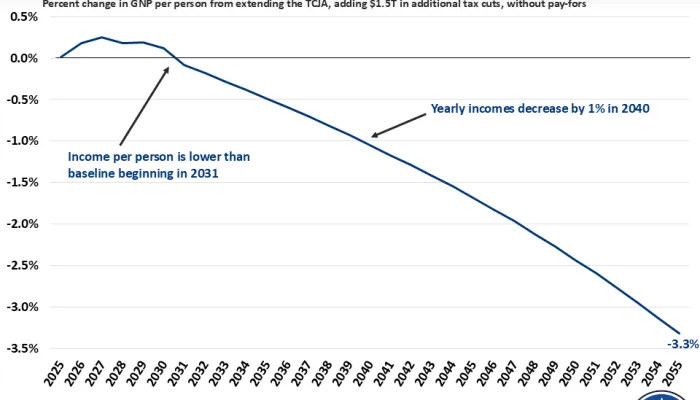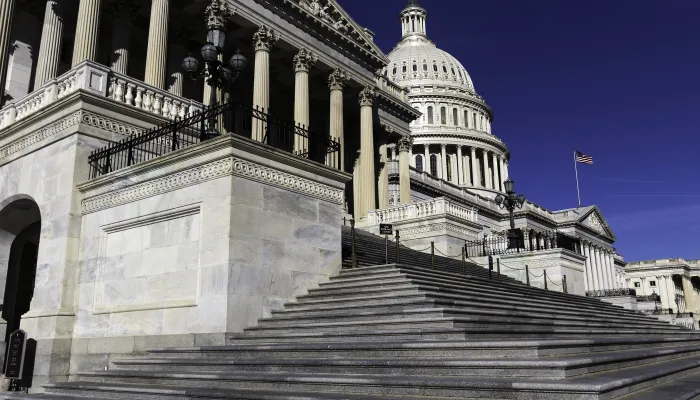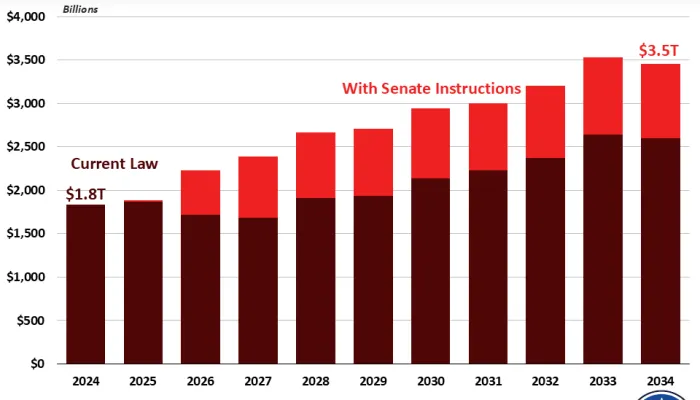Paul A. Volcker & Peter G. Peterson: Ignoring the Debt Problem
Peter G. Peterson is the founder and chairman of the Pete G. Peterson Foundation and a board member of the Committee for a Responsible Federal Budget. Paul Volcker is also board member of the Committee for a Responsible Federal Budget as well as the chairman of the President’s Economic Recovery Advisory Board and former chairman of the Federal Reserve. They wrote an op-ed in the New York Times. It is reposted below.
Together, the two of us have 179 years of life experience and 13 grandchildren. We have served presidents of both parties. We have seen more campaign seasons than we care to count — but none as strange as this one.
Insults, invective and pandering have been poor substitutes for serious debate about the direction in which this country is going — or should be going. And a sound and sustainable fiscal structure is a key ingredient of any viable economic policy.
Yes, this country can handle the nearly $600 billion federal deficit estimated for 2016. But the deficit has grown sharply this year, and will keep the national debt at about 75 percent of the gross domestic product, a ratio not seen since 1950, after the budget ballooned during World War II.
Long-term, that continued growth, driven by our tax and spending policies, will create the most significant fiscal challenge facing our country. The widely respected Congressional Budget Office has estimated that by midcentury our debt will rise to 140 percent of G.D.P., far above that in any previous era, even in times of war.
Unfortunately, despite a brief discussion during the final presidential debate, neither candidate has put forward a convincing plan to restrain the growth of the national debt in the decades to come.
Throughout the campaign, Donald J. Trump has called for a combination of deep tax cuts that appear to far exceed proposed spending reductions, at the clear risk of substantially increasing the ratio of debt to G.D.P. Hillary Clinton has set out more balanced and detailed proposals, but they would still fail to stabilize and reduce our debt burden.
Whoever wins, the new president will eventually face fiscal realities that force him or her to develop strategies for decreasing the national debt as a share of the economy over the long term.
Our current debt may be manageable at a time of unprecedentedly low interest rates. But if we let our debt grow, and interest rates normalize, the interest burden alone would choke our budget and squeeze out other essential spending. There would be no room for the infrastructure programs and the defense rebuilding that today have wide support.
It’s not just federal spending that would be squeezed. The projected rise in federal deficits would compete for funds in our capital markets and far outrun the private sector’s capacity to save, to finance industry and home purchases, and to invest abroad.
Instead, we’d be dependent on foreign investors’ acquiring most of our debt — making the government dependent on the “kindness of strangers” who may not be so kind as the I.O.U.s mount up.
We can’t let that happen — not if we want an America that is able to provide growth and stability at home while maintaining global leadership. We would risk returning with a vengeance to stagflation — the ugly combination of inflation and economic stagnation that we tasted in the 1970s.
The solutions are clear enough. A realistic approach toward the major entitlement programs is required, given that they are projected to account for all of the growth of future noninterest spending.
We should make gradual adjustments to the Social Security system that still maintain present benefit levels for those at or near retirement, with particular attention to those most in need. Our health care systems can be made more efficient, with better approaches toward cost control. Since health care represents 70 percent of the growth of our major entitlement programs over the next 30 years, bending the cost curve is essential to the long-term well-being of our economy.
It’s no secret that our federal tax system is broken — unfair, inefficient and prone to political manipulation. It’s filled with exclusions, deductions, exemptions and preferential rates — so-called tax expenditures — that are ripe for reform. Those policies cost about $1.5 trillion each year and disproportionately benefit the well off. Tax reform could provide better incentives for economic growth, while raising more revenue, even as the code is simplified.
But we face an immutable fact. Fair and responsible reforms will take years to implement. And businesses and individuals will need time to adjust.
Delaying action now will make the needed changes only more painful and difficult later on, while also increasing the risk of financial crisis before the reforms are even made. That is why the real debate should begin immediately.
Yet at the final presidential debate, both candidates missed the opportunity to clearly lay out their visions for a fiscally responsible, long-term future for our country. There’s still time to solve this problem. But our next president needs to show leadership in the first months.
At our age, neither of us will personally suffer from a failure to act. It is those with long lives ahead — grandchildren and great-grandchildren — who deserve the benefit of prospering in a nation with sound finances.
Take some advice from two observers who have been around for a while: The long term gets here before you know it.
"My Views" are works published by members of the Committee for a Responsible Federal Budget, but they do not necessarily reflect the views of all members of the Committee.


